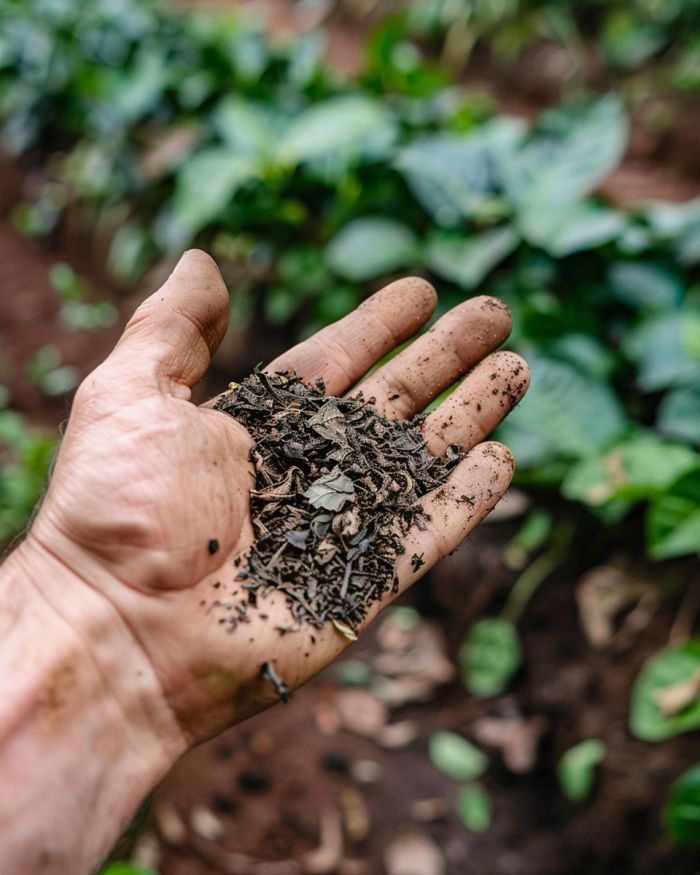Gardening enthusiasts and eco-warriors alike, take note: your daily cup of tea holds more potential than you might realize. Once you’ve brewed and enjoyed your teacup's contents, the remaining used tea leaves are far from useless. In fact, they can be remarkably beneficial for your garden.
There's an abundance of reasons to start collecting your spent tea leaves, and we'll explore just how they can help you nurture your plants more sustainably, efficiently, and effectively.
Advertisement
1. Natural Fertilizer
Tea leaves are rich in nutrients like nitrogen, which is essential for leafy plant growth. When used as a fertilizer, tea leaves can contribute to the health and vigor of your plants. As they decompose, they release these nutrients back into the soil, offering a slow-releasing feeding solution for your plants. Just sprinkle the wet leaves around the base of your plants, gently mix them into the first few inches of soil, or incorporate them into your compost heap.
2. Compost Accelerator
The decomposition of organic matter is a key aspect of composting, and tea leaves can serve as an excellent accelerator in this process. Being a 'green' component, they add nitrogen to the compost, which helps heat it up and speeds up the decomposition of 'browns' like dry leaves and newspaper. Not to mention, the teabags themselves, if made from natural materials like paper, silk, or muslin, can be composted as well!
3. Pest Repellent
Tea leaves contain tannic acid, and when spread around plants, they can help keep away pests. The odor and the slightly acidic nature of the leaves make them unappealing to insects, and thus they act as a natural deterrent. For more effective pest control, consider mixing tea leaves with coffee grounds for an added repellent effect.
4. Acidifying Soil
Some plants, like azaleas, roses, and blueberries, thrive in acidic soil. Used tea leaves are a natural way to help acidify your garden soil, making it more suitable for these types of acid-loving plants. When used over time, they can gradually lower the pH of the soil and maintain a conducive environment for your acidophilic plants to flourish.
5. Water Retention Aid
Used tea leaves help improve the water-holding capacity of soil, which means your plants will require less frequent watering and will be more resilient during dry spells. This is particularly beneficial for sandy soils which tend to drain quickly. The leaves help hold onto moisture while still providing good aeration to the root systems.
6. Cat Repellent
Cats are known to dislike the scent of tea leaves. If you're having trouble with cats using your garden as a litter box, scattering used tea leaves around can help keep them at bay. This non-toxic method can save your plants from being dug up and protect your soil from becoming too compacted.
7. Seedling Growth Boost
By adding tea leaves to the soil, you can give your seedlings a head-start. The slight acidity and nutrient content of the leaves encourage strong root development and robust early growth of young plants. Mix them in with the potting soil or line the bottom of the planting hole to give your seedlings an advantageous boost.
Advertisement
In conclusion, used tea leaves offer a wealth of benefits for your garden with practically zero cost. By re-utilizing this common kitchen waste, you're not only opting for an environmentally friendly approach to gardening but are also stepping up the quality of care for your plants. Next time you enjoy a pot of tea, remember that the leftover leaves could be just what your garden needs to thrive. Give them a second life and watch as your garden benefits from this simple, yet remarkable, act of recycling.

